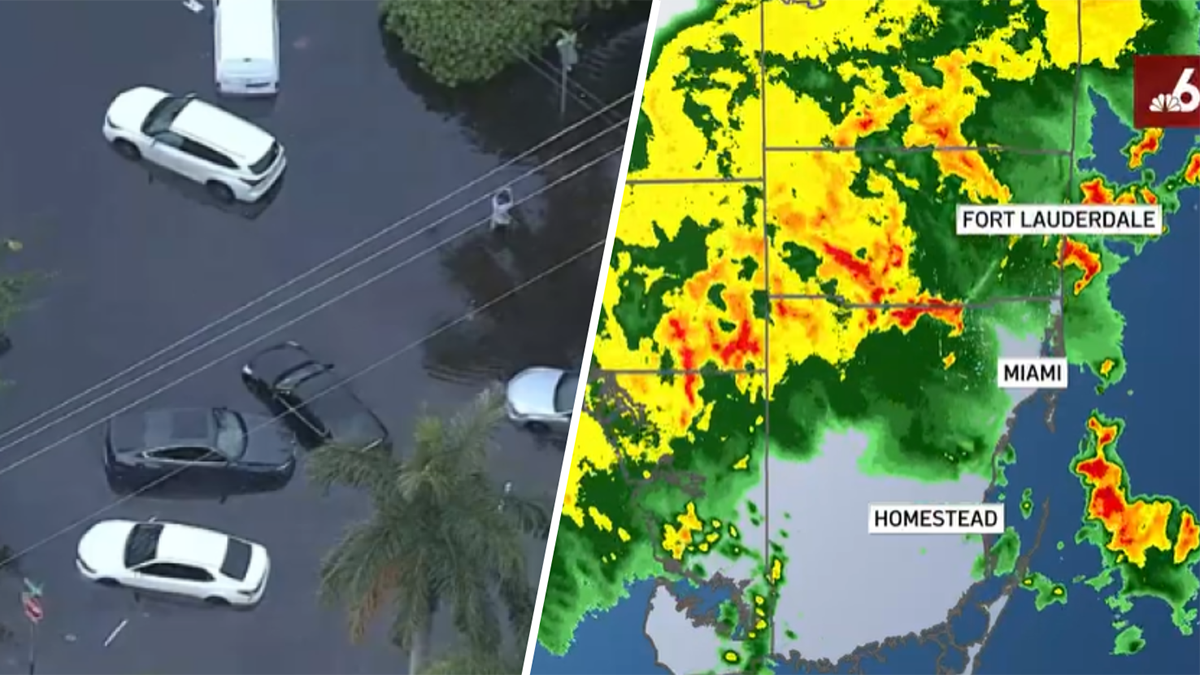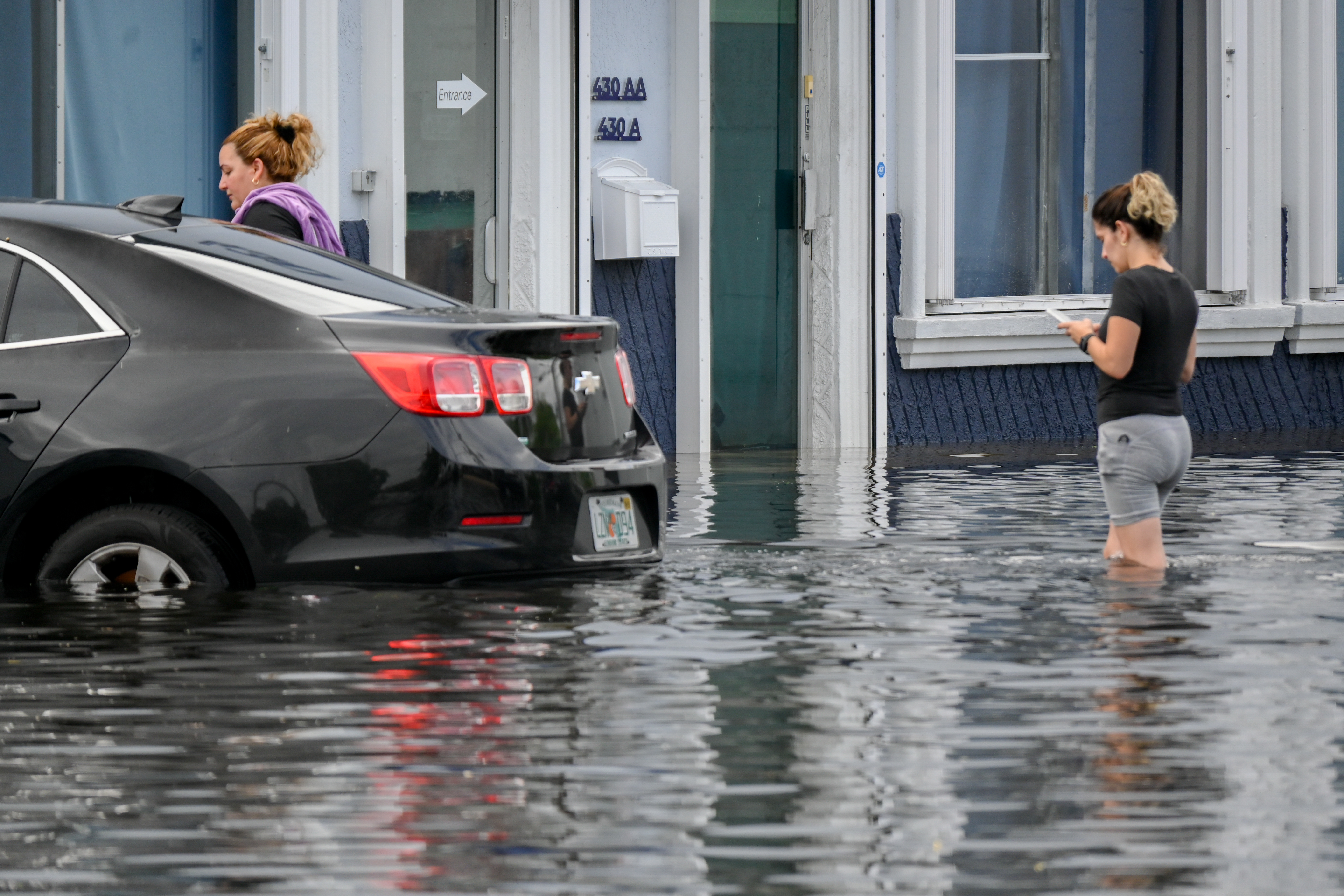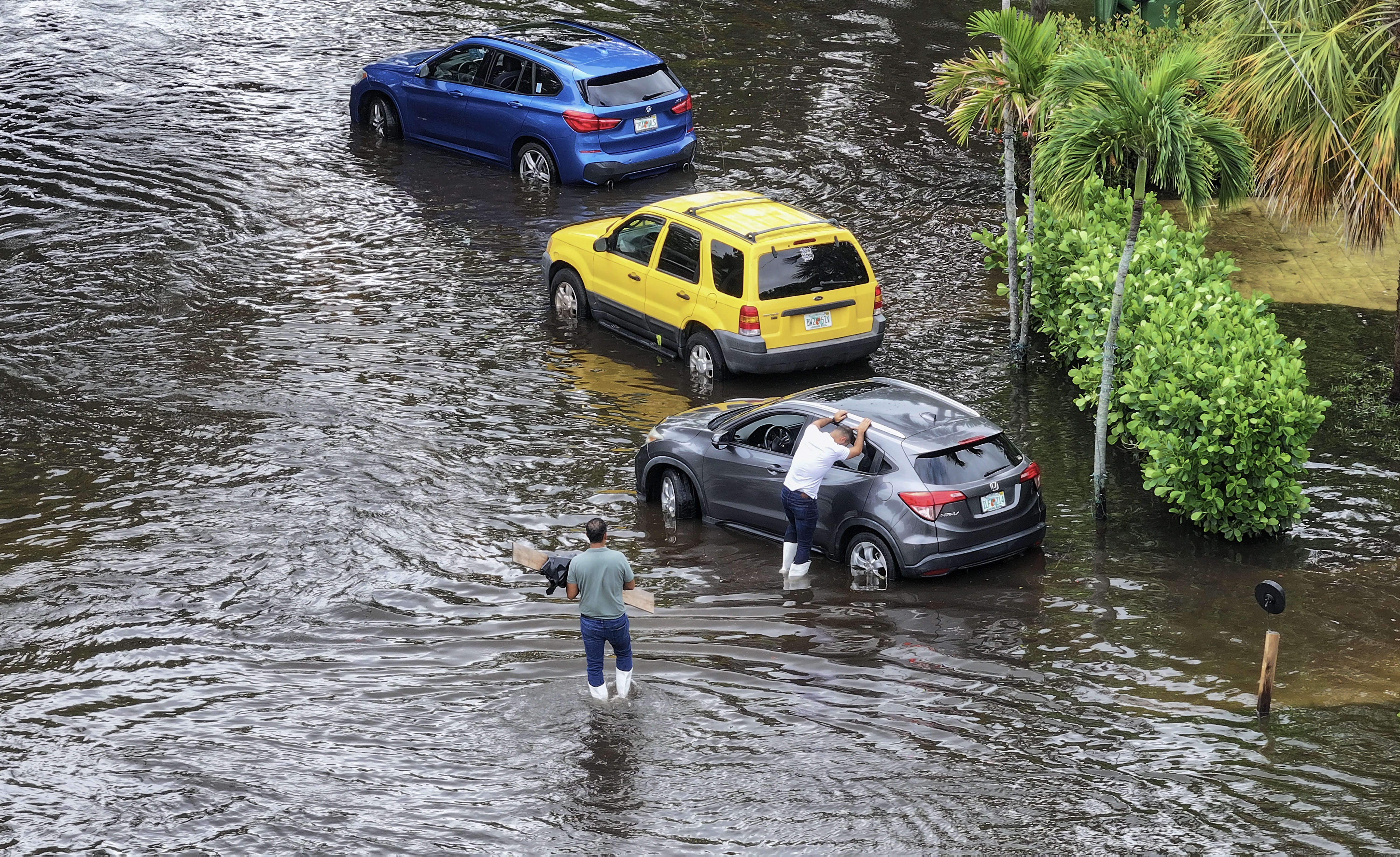A tropical disturbance that brought a rare flash flood emergency to much of southern Florida delayed flights at two of the state's largest airports and left vehicles waterlogged and stalled in some of the region's lowest lying streets.
“Looked like the beginning of a zombie movie,” said Ted Rico, a tow truck driver who spent much of Wednesday night and Thursday morning helping to clear the streets of stalled vehicles. “There’s cars littered everywhere, on top of sidewalks, in the median, in the middle of the street, no lights on. Just craziness, you know. Abandoned cars everywhere.”
With many streets still flooded and more rain expected, it’s important take steps to avoid flood damage to your vehicle.
“If you’re driving toward standing water you want to stop and turn around because the unfortunate thing, is you just don't know how deep that water could be and all it really takes is about six inches of water to cause damage to your vehicle's exhaust system your vehicle could stall,” said Mark Jenkins, with the American Automobile Association.
The Hurricane season is on. Our meteorologists are ready. Sign up for the NBC 6 Weather newsletter to get the latest forecast in your inbox.
Rico, of One Master Trucking Corp., was born and raised in Miami and said he was ready for the emergency.
“You know when its coming,” he said. “Every year it’s just getting worse and for some reason people just keep going through the puddles.”
What to do if your car gets stuck in flood water?
If your car stalls, experts with State Farm Insurance say you should not attempt to restart your vehicle because the engine could be damaged. Instead, it’s best to leave it immediately and seek higher safety.
My car is flooded. What should I do now?
When it’s safe, experts say you should tow your vehicle to a repair shop for an inspection before attempting to drive it.
“Before starting the vehicle, have it towed to an over pair facility to ensure that it has a full inspection before you take that vehicle out on the roadway again because there is a lot of damage that could impact the safety of that vehicle,” Jenkins said.
If your car does have damage, then it’s a good idea to get the insurance claim process rolling.
“Insurance companies are often bombarded with a lot of calls and they're processing a lot of information the best thing that you can do to speed up the process is contact your insurance provider as soon as possible and get them the necessary information that they need to begin the process of filing that claim,” Jenkins said.
According to State Farm Insurance, as of Thursday morning they have received approximately 300 auto claims following the widespread flooding in South Florida.
If your car has been damaged, you should document the damage with pictures and video. Send this information to your insurance company right away.
The sooner the vehicle can be inspected and dried out, the less damage it will sustain.
What type of car insurance covers flood damage?
For your auto insurance to cover damage from rising flood waters, you need to have comprehensive coverage.
According to Progressive Insurance’s website, even if your car is stopped in floodwater or gets damaged by driving through a flooded street your comprehensive coverage may pay for the repairs.
If you don’t have comprehensive coverage, the cost to fix your vehicle will come out of your pocket.




